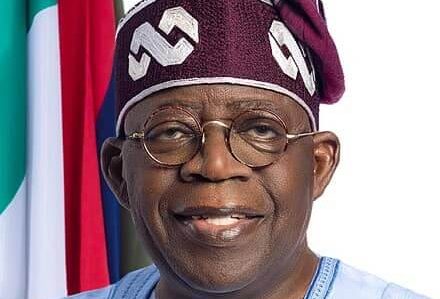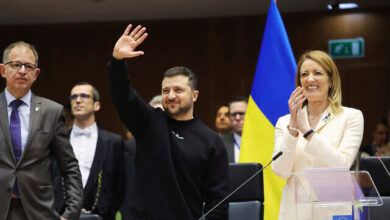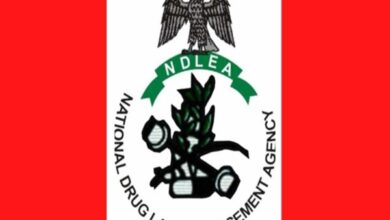Tinubu and promise of cheaper energy for prosperity, by Oche Echeija Egwa |

President Bola Ahmed Tinubu’s removal of fuel subsidy on May 29, 2023 will always be remembered for its audacity. And the President himself will be in history books for his uncommon courage.
Less than two years later, the alternative is steadily paying-off, not only for motorists and transporters, but also for businesses and households.
Noticeably, the long, serpentine petrol queues that bedevilled the transportation industry in the past have gradually disappeared across the country. There is a growing interest in cheaper alternative sources of energy, like Compressed Natural Gas (CNG) and electric vehicles.
Interestingly, new queues have resurfaced around filling stations, largely stimulated by demand for gas.
While inaugurating 30 hybrid CNG-powered buses on August 12, 2024, as part of palliatives to reduce the effects of removing subsidy from PMS (Premium Motor Spirit), the President assured that the relatively new bride, CNG, was cheaper, safer and more environmentally friendly.
President Tinubu said commercial vehicles accounted for more than 80 percent of the nation’s petrol demand and daily consumption. He noted that instituting a more affordable and reliable alternative with gas would create a new lease of life, reduce cost of living and cut the corruption in petrol subsidies.
Removing the strangling subsidy, he said, was economic salvation for the nation and posterity. He said: “Countries like India have mandated CNG for all commercial vehicles since 2004. In Nigeria, commercial vehicles make up about 80 per cent of our petroleum demand, costing us trillions of naira every month. The solution is here. We have it. We will work on it. We promise you, definitely, things will get better. Prosperity will be achieved. I thank Innoson Motors and others who have been committed to changing the narrative in this country. Utilizing natural gas to power our transportation industry is the next way to go. Like many countries, Nigeria will work harder and be productive with our own gas. It is an economic necessity that we should embrace.”
According to the Nigerian Upstream Petroleum Regulatory Commission (NUPRC), Nigeria has the ninth largest natural gas reserves in the world. The reserves of Associated and Non-Associated Gas stood at 209.26 trillion cubic feet (TCF) as of January 1, 2024.
At filling stations in Abuja, and most parts of the country, some motorists have converted their vehicles to hybrids, sharing the benefits of gas, which include cost efficiency, reliability and environmental friendliness.
“You can see that queues for petrol have given way to gas,” a transporter, Ibrahim Bala Aminu, said at an NNPC station in Gudu, Abuja. “Gas is far cheaper. With N5,000 to fill my cylinder, I can work for a whole day, compared to spending N65,000 to fill my tank with petrol.”
Anosike Uzo, a mechanic and spare parts dealer, describes gas as “a game changer” in the Nigerian transportation sector.
Updating newsmen at the Presidential Villa on achievements of the Presidential initiative, the Programme Director of Presidential CNG Initiative, Engr. Michael Oluwagbemi, said the PCNGI had been able to stimulate demand, and encourage the private sector to invest in the implementation of the policy.
Oluwagbemi said: “No doubt, after an intensive stakeholder engagement and public awareness campaign from May to November 2024, the PCNGI’s most important achievement was to convince the private sector to invest critical funds alongside the government’s investments upon stimulation of demand by commercial vehicle operators and private vehicle users alike. We have attracted over $491million of investments in the past year to AutoNG and we are very proud of it. This has created over 9,000 direct and 75,000 indirect jobs.”
To further actualise the President’s vision for cheaper alternatives to petrol, and domesticating the initiative, Oluwagbemi said Nigeria’s conversion capacity of vehicles from pure petrol and diesel to bi-fuel vehicles was raised by almost 3,000 percent with more than 200 new conversion centres established. Before now, he noted that only seven conversion centres existed in the entire country.
He said: “About 22,000 conversion kits were initially procured and started being delivered in October 2024 to the program by the Ministry of Finance. Already, we are on course for 10,000 conversions by the end of this quarter under this program having started in December, 2024. More recently, that program has been expanded by the PCNGI to enable deep discounts for public servants and finance the balance of costs for converting their vehicles working with another major initiative of Mr President, which is the Credit Corp. We will soon launch that initiative with the public sector unions.”
Allaying the fears of reported explosions in Benin, Edo State, the Programme Director said investigations had revealed that some of the cylinders and conversions were done by amateur technicians. He said: “At this point let me be clear, that the sole safety incident that occurred in Benin last year was a result of economic saboteurs engaged in illegal fabrication of CNG cylinders and were arrested by the police. With Nigerian Gas Vehicle Monitoring System (NGVSM) in place, that incident will be avoided as only properly labelled and accredited vehicles with certified tanks will be refuelled. The necessary steps to launch NGVMS are on-going, and we expect it to be in place by year end. We won’t relent in ensuring the safety of lives and investments of participants in the sector. This was why we prioritized regulatory standards issuance from the get-go in March 2024 and continue to work with these agencies especially Standard Organisation of Nigeria (SON) & National Automotive Design and Development Council. (NADDC). We enjoin all participants to ensure full compliance with regulatory requirements on safety and security.”
Oluwagbemi explained that gas filling stations had been directed to stop attending to vehicles that were poorly converted to avoid mishaps in the future. He said: “If you also recall, demonstrating the efficacy of CNG and EV platforms, CNG buses and tricycles as well EV buses were procured on our behalf by the Federal Ministry of Finance. A total of 655 buses were procured. 421 CNG Buses and 36 EV buses have been delivered so far, the program has deployed 405 buses either as part of the settlement of terms with the NLC and TUC as part of the wage negotiations, or to the transport unions being run commercially in partnership with the Federal Ministry of Transportation or through the partnership with state transport companies that was launched last year. The Renewed Hope Mass Transit scheme launched during the Yuletide period providing free or discounted rides during that time, has now continued commercially and will soon be launched for tricycles as soon as we sort out the last mile gas infrastructure scheme.”
Oluwagbemi said the queues for gas would be reduced over time with ongoing mapping and opening of stations in strategic locations for ease of access, particularly for state commuters. He added: “Speaking about the last mile gas infrastructure scheme, we are aware that as a result of our successful awareness campaign last year and groundbreaking initiatives like CIP that pay the private sector to convert vehicles to CNG, there has been a visible gap in CNG availability at the last mile. We note the longer queues in some locales but assure this is temporary. The influx of CNG trucks as our industries invest and the over 30,000 CNG conversions undertaken by the private sector – having more than quintupled the CNG fleet of Nigeria – naturally will put pressure on our gas infrastructure. But the PCNGI is not relenting in solutions.”
Oluwagbemi explained that an aggressive Last Mile Gas Infrastructure scheme, refuelling on lending Program, would provide equipment at cost for refuelling to key conversion centres and refuelling partners. He said 25 sites would benefit, and 15 states for the project, with the first site in Kwara State, while Kogi, Ekiti, Rivers and Abuja would be completed by May 1, 2025.
He said: “By June 12 we shall have Kaduna, Abia, Enugu joining the fray with Niger, Kano and Benue following shortly thereafter. To further bolster this base infrastructure, we have co-opted our private sector partners to deploy over 150 new refuelling locations in the next 18 months. NNPC has already deployed 12 sites, with 8 to go this quarter, and approval for an additional 100 sought and secured for the next 18-24 months.
“NIPCO has imported equipment for 32 daughter station sites with 22 in operation and 8 under construction. Bovas has 8 under construction and AY Shafa has completed one with 9 under construction. Entities like Ibile Oil and Gas, MBH and Mikano are also investing in not just daughter stations but also mother stations. Just this week, l visited the largest mother station under construction in Nigeria by Mikano in Ogun State that will have 12 dispensing arms for large trucks, that are rapidly converting to CNG and has the potential to drive down food and goods inflation rate by reducing costs by up to 80 percent! To this end, the Diesel Conversion Program will be launched this year by the PCNGI to accelerate this process.”
On building capacity to meet up with the growing demands for the bi-fuel vehicles, the programme director pointed out that more than 1,500 technicians were trained last year, and another 5,000 would be up-skilled in 2025. “This will ensure that Nigeria’s CNG sector is underpinned by strong local content and capacity. Active training and collaboration with national institutions like the Nigeria Army and Police is also on-going, as well as institutions like NITT, NADDC, SMEDAN and NASENI,” he said.
Oluwagbemi also disclosed that the university community would be fully involved in the expansion of the project, while appreciating President Tinubu for the political will to push the country into the future, and purposeful leadership dexterity of the Steering Committee led by Dr. Zacch Adedeji.
At the interaction with journalists, Bayo Onauga, Special Adviser to the President on Information and Strategy, said the President had also directed the team to prioritise use of electric vehicles in Nigeria as suitable alternatives to petrol. Onanuga said: “The CNG and electrical vehicle programme are dear to Mr. President. When he removed the fuel subsidy, he felt the pains of Nigerians, but it was expedient. And he said a solution must be found in using gas and electric vehicles.”
With the benefits of cost effectiveness, the clean energy engendering cleanliness of our environment and cheaper maintenance gradually trickling down in the transport sector and beyond, transporters and motorists in Nigeria are hopeful of a brighter and more sustainable energy source delivered purposefully by President Tinubu.
. Egwa is an Assistant Director in the Office of the Special Adviser to the President on Media and Publicity.
Post Views: 1






